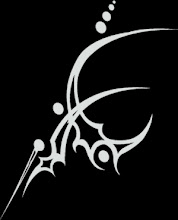In last month's article I used the 14th century story-poem, Sir Gawain and the Green Knight in my discussion. My continued reflections on the theme of death and renewal have led me back to the course I teach in British literature. As I teach different time periods, I have my students become familiar with the historical background of the period. To understand literature fully, one must see it in the context of the culture from which it comes. But at all times the best literature teaches us about our humanity. However, different time periods and movements approach our humanness from different perspectives.
Some of my students have just finished studying Alexander Pope's poem called "Essay on Man." Pope wrote during a period of the revival of classicism called the Age of Reason. During that time, the predominant theory was that all things could be worked out in the cold light of reason. Pope's essay in poetry form tries to analyze and describe mankind as he fits into the universe. He deals from an outer perspective comparing mankind to greater creatures, the divine, and lesser ones such as beasts. His poem is full of paradoxes.
Jung also dealt with the paradoxes of mankind but in a very different way. In his book, Mysterium Coniunctionis, which is a continuation of his work on the topic of medieval alchemy as a symbol of the individuation process, he talks of the symbolic meaning of salt as a catalyst in the process of one coming to know oneself and become more integrated. In his discussion he applauds Freud for calling attention to the "almost universal unconscious" when as he put it, "the danger of nationwide psychic epidemics...threatened Europe" around the time of WWII. He goes on to say:
What he [Freud] did not see was that the confrontation with the shadow is not just a harmless affair that can be settled by "reason." The shadow is the primitive who is still alive and active in civilized man, and our civilized reason means nothing to him. (Jung 253)
While Alexander Pope's lines full of paradoxes may have hinted at the shadow of mankind, they were descriptive of the predicament, but like Freud, approaching the problem of the shadow from a rational perspective, he did not give us any clues on dealing with it. Jung says that Freud underestimated the power of the shadow. In this context he was speaking of the shadow of the collective unconscious, particularly as it operates in mass-mindedness, such as the Nazi movement prior to WWII.
Jung also dealt with the paradoxes of mankind but in a very different way. In his book, Mysterium Coniunctionis, which is a continuation of his work on the topic of medieval alchemy as a symbol of the individuation process, he talks of the symbolic meaning of salt as a catalyst in the process of one coming to know oneself and become more integrated. In his discussion he applauds Freud for calling attention to the "almost universal unconscious" when as he put it, "the danger of nationwide psychic epidemics...threatened Europe" around the time of WWII. He goes on to say:
What he [Freud] did not see was that the confrontation with the shadow is not just a harmless affair that can be settled by "reason." The shadow is the primitive who is still alive and active in civilized man, and our civilized reason means nothing to him. (Jung 253)
While Alexander Pope's lines full of paradoxes may have hinted at the shadow of mankind, they were descriptive of the predicament, but like Freud, approaching the problem of the shadow from a rational perspective, he did not give us any clues on dealing with it. Jung says that Freud underestimated the power of the shadow. In this context he was speaking of the shadow of the collective unconscious, particularly as it operates in mass-mindedness, such as the Nazi movement prior to WWII.

























0 komentar:
Posting Komentar